From Molecules to Organisms: Structures and Processes
-
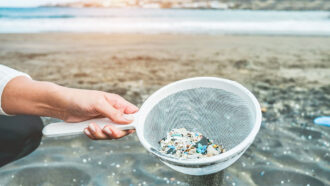 Environment
EnvironmentMicroplastic pollution aids viruses and prolongs their infectivity
The tiny plastic bits give these germs safe havens. That protection seems to increase as the plastic ages and breaks into ever smaller pieces.
-
 Plants
PlantsWhy dandelions are so good at widely spreading their seeds
Individual seeds on a dandelion release most easily in response to winds from a specific direction. As the wind shifts, this scatters the seeds widely.
-
 Health & Medicine
Health & MedicineToddler now thrives after prenatal treatment for a genetic disease
Ayla was treated before birth for the rare, life-threatening Pompe disease. Now a thriving 16-month-old toddler, her treatments will still need to continue.
-
 Health & Medicine
Health & MedicineAn asthma treatment may also help tame cat allergies
Adding a therapy used to treat asthma improved cat allergy symptoms for more than a year, a small study found.
-
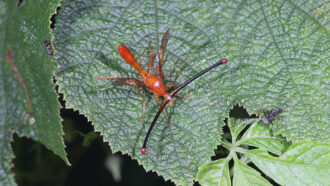 Animals
AnimalsSome young fruit flies’ eyeballs literally pop out of their heads
The first published photo shoot of developing Pelmatops flies shows how their eyes rise on gangly stalks in the first hour of adulthood.
By Susan Milius -
 Brain
BrainLet’s learn about creativity
By reading brain scans and eavesdropping on brainwaves, scientists are learning more about how creativity works.
-
 Humans
HumansLong-lost ‘smellscapes’ are wafting from artifacts and old texts
By studying and reviving old scents, archaeologists are finding new clues about how ancient Egyptians experienced their world through smell.
By Bruce Bower -
 Animals
AnimalsSplatoon characters’ ink ammo was inspired by real octopuses and squid
In Nintendo’s Splatoon game series, Inklings and Octolings duke it out with weapons that fire ink. How does this ink compare with that of real octopuses and squid?
-
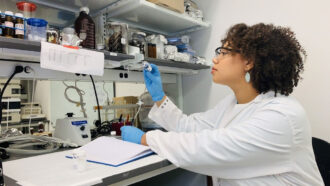 Environment
EnvironmentThis chemist uses online videos to teach about the perils of microplastics
Imari Walker says her journey as a scientist and science communicator lets her talk about and advocate for her passion.
-
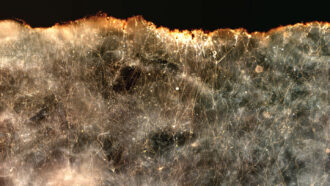 Environment
EnvironmentBacterial ‘living wires’ could help protect the seas and climate
Long, thin bacteria that conduct electricity may be able to help clean up oil spills and reduce emissions of methane, a powerful greenhouse gas.
By Nikk Ogasa -
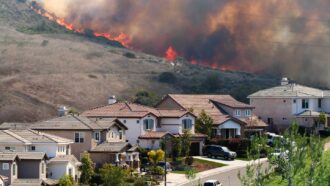 Earth
EarthAnalyze This: Wildfires are pumping more pollution into U.S. skies
Researchers wanted to study the health effects of wildfire smoke. But they realized they didn’t know where it was and how much exposure people had.
-
 Brain
BrainScientists Say: Glymphatic System
The glymphatic system bathes the brain in cleansing fluids during sleep and clears away harmful cellular waste.